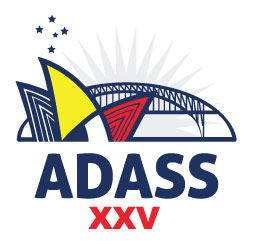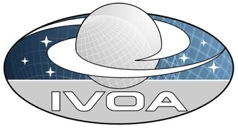ChiVO at ADASS 2015 + IVOA Interop


The annual Astronomical Data Analysis Software and Systems (ADASS) conference provides a forum for scientists and programmers concerned with algorithms, software and software systems employed in the acquisitions, reduction, analysis and dissemination of astronomical data.
The conference will be held from 25-29 October at Rydges World Square, Sydney, Australia. The hosts of ADASS XXV will be ARC Centre of Excellence for All-sky Astrophysics (CAASTRO).
Rydges World Square is located in the heart of Sydney. This world-class hotel offers easy access to Darling Harbour, Cockle Bay, Sydney Entertainment Centre and the city’s financial precinct. The Sydney CBD hotel is 20 minutes from Sydney Airport (SYD).
Chivo presented the poster:
The ChiVO Library: Advanced Computational Methods for Astronomy. The main objective of the Advanced Computational Astronomy Library (ACALib) isto ensemble a coherent software package with the research on computational methods for astronomy performed by the first phase of the Chilean Virtual Observatory between years 2013 and 2015. During this period, researchers and students developed functional prototypes, implementing state of the art computational methods and proposing new algorithms and techniques. This research was mainly focused on spectroscopic data cubes, as they strongly require computational methods to reduce, visualize and infer astrophysical quantities from them, and because most of the techniques are directly applicable either to images or to spectra. The ACALib philosophy is to use a persistent workspace abstraction where spectroscopic data cubes can be loaded from files, created from other cubes or artificially generated from astrophysical parameters. Then, computational methods can be applied to them, resulting in new data cube instances or new data tables in the workspace. The idea is to provide not only API bindings for the workspace and the cubes, but also web-services to use the library in cloud-based frameworks and in the Virtual Observatory. In a nutshell, ACALib is integrating and testing several cube manipulation routines, stacking procedures, structure detection algorithms, spectral line association techniques and a synthetic data cube generation module. The library is developed in python, strongly rooted in astropy modules and using efficient numerical libraries such as numpy and scipy, and machine learning libraries like scikitlearn and astroML. In the near future, we plan to propose ACALib as an astropy affiliated package, and to create a CASA add-on to ease the usage of our methods. Also, we are exploring bleeding-edge computational methods to include to ACALib, such as deep learning networks, and developing new prototypes for other types of astronomical data, such as light curves in the time-domain.